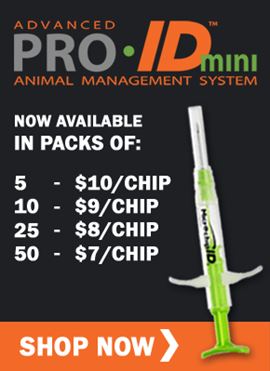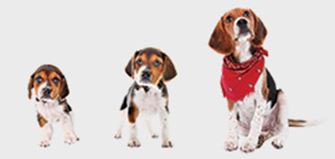
7 Reasons Why Your Dog May be Eating Poop (And How to Stop It)
It’s the question that has plagued dog owners since time immemorial, and let’s be real . . . it’s pretty disgusting.
Stool eating is also known as coprophagia, and the word coprophagy stems from the Greek word copro, meaning feces, and phagy, meaning “to feed on.”
Contrary to popular belief, this distasteful behavior is not necessarily due to a dietary deficiency. Although science hasn’t come to a complete consensus on the subject, here are a few solid guesses as to why your dog does what he does . . . with his doo.
Why (Oh God Why) Is This Happening?
1. Natural Instinct
Theory holds that coprophagy is an innate trait found in all canines—wolves, coyotes and domesticated dogs—that emerges when food is in short supply. Before dogs were domesticated, they had to live off of whatever they could find. When dogs are bred they sometimes lose their natural instincts, but this is not always the case. Poop eating is normal when pertaining to a mother dog and her litter. It is a mother dog’s instinct to keep her puppies safe, so she will clean up after them to hinder the smell from predators.
2. A Learned Behavior
Your dog may have learned to eat poop from watching other animals, it’s that simple. Doggie see, doggie do.
3. Medical Problems
Generally, this is will be the least likely reason for your dog to eat poop. However, some medical conditions can contribute to coprophagia including pancreatic insufficiency, intestinal malabsorption, or starvation. These cases are rare, but it would be a good idea to visit your local veterinarian to rule out any possible medical issues.
It’s the question that has plagued dog owners since time immemorial, and let’s be real . . . it’s pretty disgusting.
4. Shame
If your dog has been reprimanded for going in the house, he may eat the evidence to avoid getting into trouble.
5. Attention-seeking Behavior
Do you get upset when your dog eats his poop? Your dog might anticipate your response and continue just for the reaction. After all, negative attention is still attention. Those who scold their dogs for an undesired behavior may actually be inadvertently reinforcing that behavior.
6. Anxious/Stressed
Situations causing a dog stress or anxiety—such as being crated, kenneled, or brought into a new home—may accidentally trigger this displeasing behavior as part of the dog's effort to reduce tension.
7. Boredom
Left alone, with nothing else to do, your dog may turn to eating that luscious lump of poo to “entertain” himself. I mean, if you don’t leave him access of your iPad, what else is he supposed to do?
Poop Eating Prevention
Now that we have discussed some reasons why your canine friend may be eating his poop, here are some ways to combat the behavior:
1. Pick up your dog’s poop
Supervise your dog when he is let out for a potty break, do not give him a chance to play or eat his stool. When your pup is done doing his business, clean it up—the goal here is to keep the yard poop free.
2. Offer toys to challenge his brain
Provide your dog with other forms of entertainment to stimulate his brain.
3. Make the poop taste bad
Add some fresh pineapple or a few tablespoons of canned pumpkin to your dog’s food. It tastes good in the food, but bad in the poop. You could also add hot sauce, cayenne pepper, or lemon juice to your dog’s stool.
4. Improve your pet’s diet
Make certain that your dog is getting an adequate amount of nutritious, high quality food.
5. Walk your dog on-leash
When you go for a walk, walk your dog on a leash—this enables you to have control and prevent your dog from smelling and eating the poop of other dogs.
Are there health risks with eating poop?
While poop eating is a natural behavior for dogs, parasites can be transmitted through stool consumption. So if your dog eats poop routinely, it is important to have him examined by a veterinarian for any potential parasites he may be carrying or other medical conditions.












